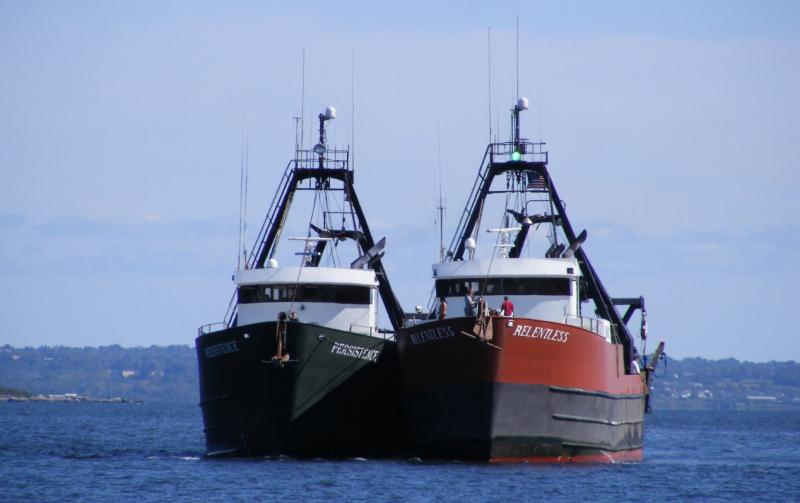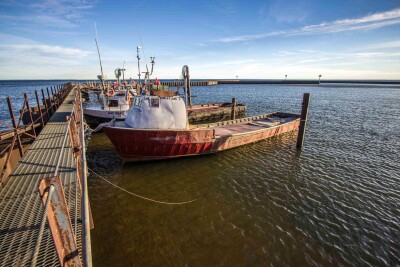Encouraged by New Jersey herring fishermen’s application to the U.S. Supreme Court, lawyers for Rhode Island captains are likewise asking the high court to consider what they say is “an unconstitutional rule requiring fishing companies to pay for at-sea government monitoring of their herring catch.”
The legal activist group New Civil Liberties Alliance petitioned the court June 14 for a “writ of certiorari” in its case representing Point Judith, R.I. companies Relentless Inc., Huntress Inc. and Seafreeze Fleet LLC.
Their case challenges a 2020 rule imposed by the National Oceanic and Atmospheric Administration that required vessel operators to pay for observers on their vessels at sea, at a cost that owners say can exceed $700 daily and sometimes exceed the money they make from landing low-priced herring.
The Supreme Court could soon hear arguments in a case called Loper Bright, named for one of several Cape May, N.J. fishing companies fighting the observer requirement that lost their initial case in court but appealed. NOAA waived the rule earlier this year as it ran short of money to administer the program. But fishermen want to make sure the observer requirement is not renewed, and conservative advocacy groups see their cause as a chance to overturn a long-standing precedent called the “Chevron deference.”
Named for a 1980s court case between the oil company and environmental activists, the Chevron deference established a principle that federal courts should defer to agencies like NOAA in their interpretation of ambiguous law. In the matter of herring fishing, the agency deciding it had authority to demand payment for observers.
But Congress never authorized that power to the agency, the legal activists say. Now a split in decisions among federal appeals court gives them hope for overturning the Chevron deference.
In its ruling on the Cape May fishermen’s case, the First Circuit Court of Appeals in Washington, D.C., “decided that broad ‘necessary and appropriate’ language in the Magnuson-Stevens Act, which governs U.S. fisheries, augmented the agency’s regulatory power,” according to a narrative from the New Civil Liberties Alliance. “It then relied heavily on Chevron deference to uphold the agency’s ostensibly reasonable interpretation of a supposedly ambiguous federal statute.”
However, the Fifth Circuit Court of Appeals in New Orleans, La., rejected similar arguments by government lawyers for NOAA in defending another agency rule requiring Gulf of Mexico charter fishing operators to submit to tracking of their vessel movements.
The Supreme Court should now “examine this conflicting treatment” of the Magnuson-Stevens Act, according to the NCLA.
“When the Supreme Court decides the question presented in Loper Bright, it must confront two central problems with Chevron deference: its denial of due process of law and its destruction of independent judicial judgment,” said Mark Chenoweth, the NCLA’s president and general counsel.







